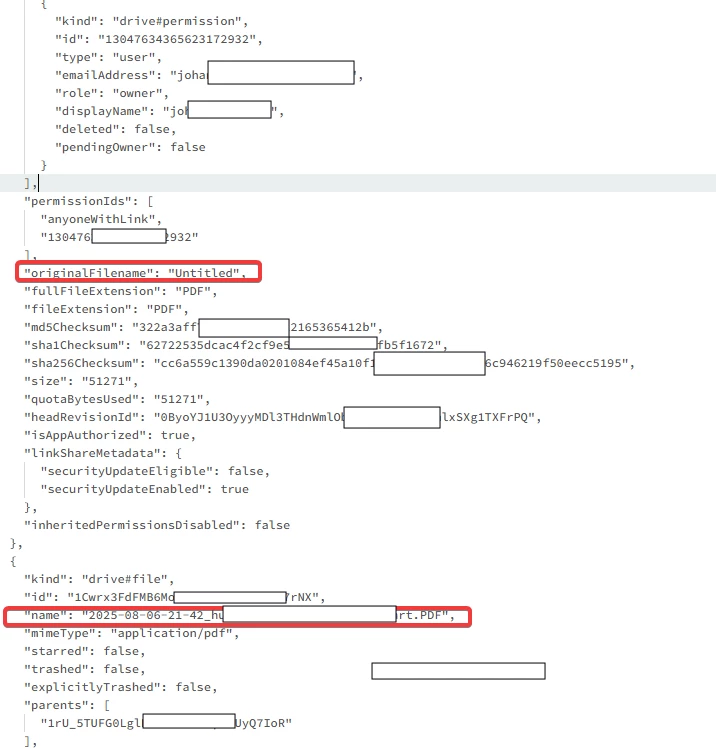I’m running into a confusing problem involving PDF attachments and third-party apps (specifically Noloco) that are connected to my Airtable base. Here’s a detailed explanation:
Background & Problem
-
I am using n8n (automation platform) to upload multiple PDF attachments to a field in Airtable.
-
In Airtable itself, everything appears correct:
-
The PDF filenames are always displayed exactly as expected (both in the UI and in the API attachment objects).
-
-
Noloco (an app builder which connects directly to Airtable) is showing incorrect or strange filenames for some attachments:
-
Instead of the real filename (e.g.
2025-08-06-21-43.PDF), Noloco sometimes displays a generic value likeucas the filename. -
However, for attachments uploaded manually to Airtable (via UI), Noloco displays the correct filename.
-
What I Have Tried
-
I have checked the attachment objects both in the Airtable API and via scripting:
-
The filename property is always correct and matches what’s shown in the Airtable UI.
-
-
I built an Airtable automation using the scripting app to verify filenames and log them;
-
The filenames are always correct and there is no sign of the generic/incorrect names visible anywhere in Airtable.
-
-
I have hundreds of PDF files, so manually re-uploading them is not an option.
-
I understand that you cannot directly update an attachment’s filename in Airtable (only by deleting and re-uploading the attachment with the correct filename).
My Questions
-
Where does Airtable actually store the filename property for an attachment?
Is there any hidden layer or version that could be different from what’s shown in the UI and scripting? -
Is it possible (via scripting, automation, or API) to force an update or correction to the filename for an attachment—without re-uploading the file?
-
Why would a third-party tool like Noloco see a different filename than what’s visible in Airtable?
Is there any known caching, delay, or “internal” filename property that’s not visible to Airtable users? -
Has anyone experienced a similar issue with attachments uploaded by n8n (or Make/Zapier), where filenames mismatch only in downstream tools, but look fine in Airtable?
Further Details
-
All attachments are PDFs, stored in a
multipleAttachmentfield. -
The field and filenames are correct for every record as seen in Airtable and via API.
-
Problem occurs only for some records, and only in Noloco; there’s no pattern I can see.
-
Re-uploading a PDF via Airtable UI “fixes” the issue in Noloco, but that’s not practical for us.
If there’s any way (official or workaround) to ensure the “real” filename is always what is shown and passed to third-party tools, I would appreciate any advice!
Thank you for your help and insights!



